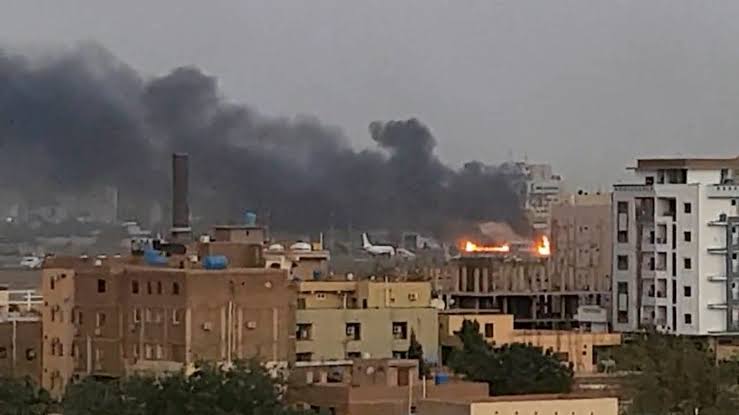
Leaders of the Sudanese army and the rival paramilitary Rapid Support Forces (RSF) agreed to a seven-day ceasefire from May 4 to 11, according to a statement issued by the South Sudan Foreign Ministry on Tuesday.
The statement comes days after the president of South Sudan, Salva Kiir, began mediating between the two sides as the representative of the Intergovernmental Authority on Development (IGAD), a regional alliance.
Mr Kiir seeks to end the fighting between the forces of Sudan’s de facto president Abdel Fattah al-Burhan and those of his deputy, Mohammed Hamdan Daglo, who leads the RSF.
Messrs Al-Burhan and Daglo agreed to name representatives for negotiations to be held in South Sudan’s capital Juba, the statement said.
No date for the start of the negotiations has yet been set, the ministry said. The rapidly deteriorating humanitarian situation makes de-escalation of the conflict imperative.
Several 72-hour ceasefires have been called since fighting broke out on April 15, but these have been broken repeatedly.
At the end of last week, the health ministry reported around 530 dead and some 4,600 injured due to the fighting.
In the chaos of the fighting, however, it is difficult for the authorities to keep an overview, and the true numbers are thought to be far higher.
Meanwhile, the UN International Organisation for Migration (IOM) said at least 334,000 people have become internally displaced in Sudan since the violence broke out.
An IOM spokesman said that the majority of them, around 240,000 people, are displaced in the areas of South and West Darfur, in the west of the country.
Even before the recent clashes began, there were 3.7 million people displaced in Sudan due to previous conflicts.
Meanwhile, the number of people from Sudan seeking refuge in neighbouring countries has exceeded 100,000, according to the UN refugee agency UNHCR.
Many have arrived in Chad, South Sudan, and Egypt.
Among them are Sudanese and refugees from other countries who had found shelter in Sudan.
(NAN)


